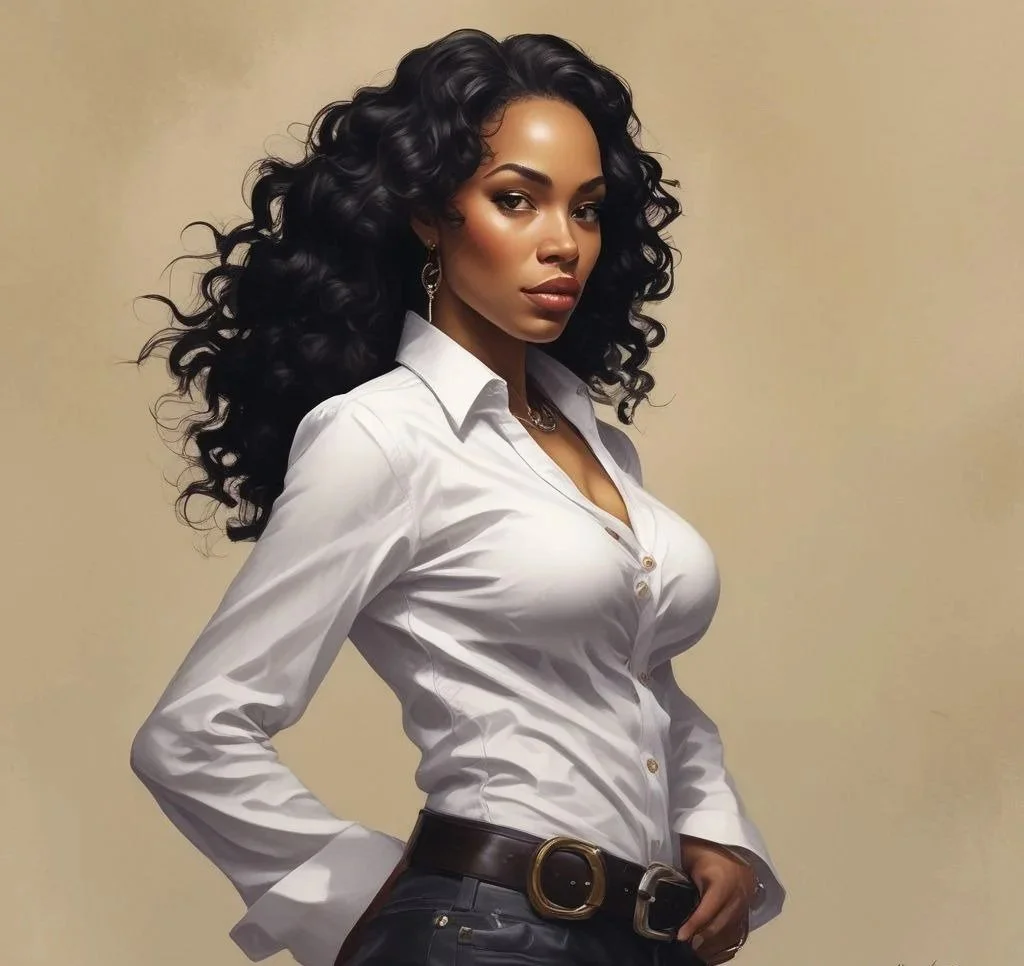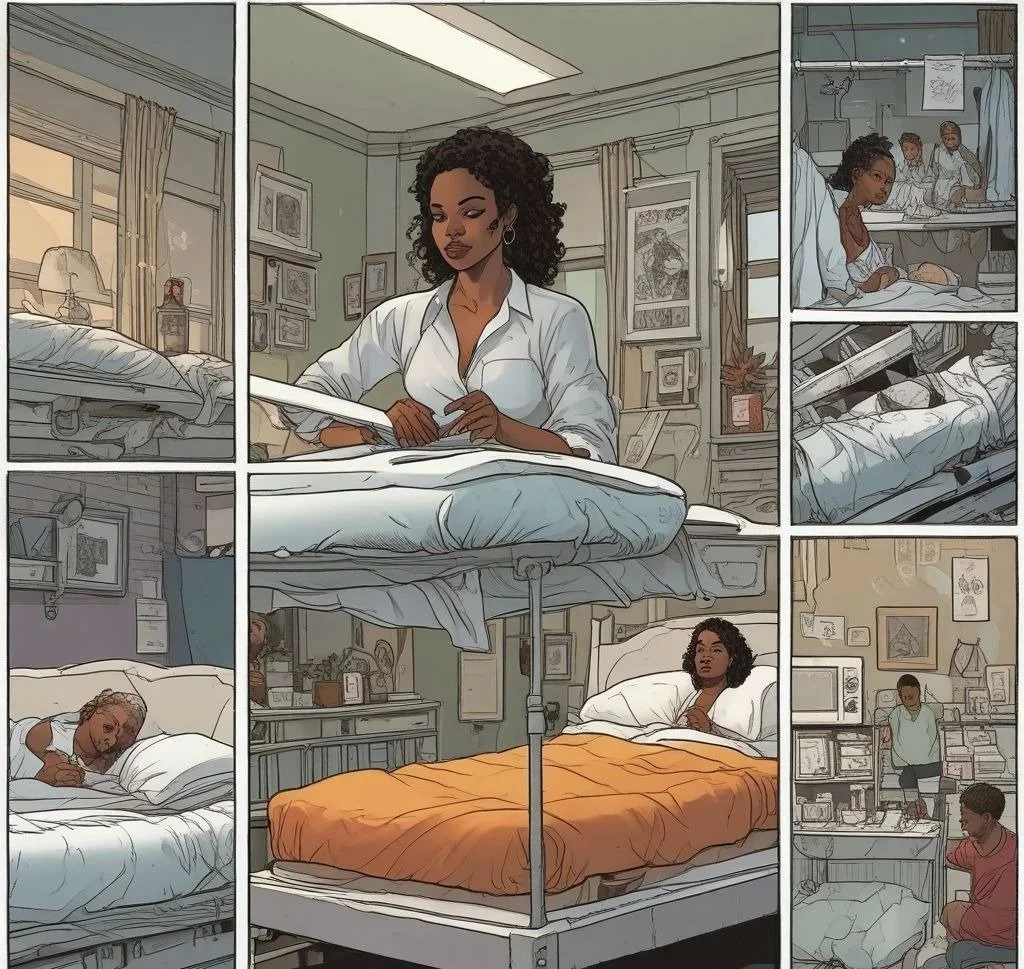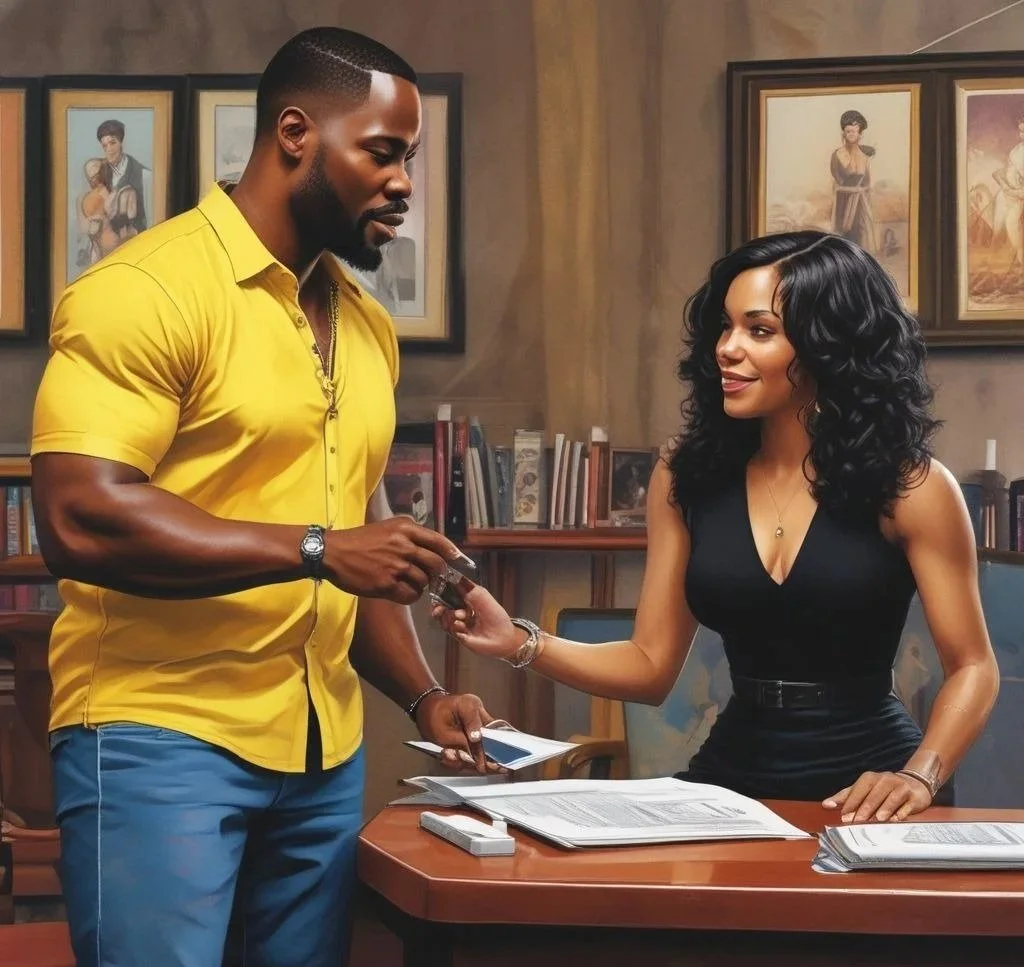Intro: Who Is Melyssa Ford?
Melyssa Ford isn't just a name; she's a cultural touchstone, a masterclass in evolution, and a testament to the power of redefining one's narrative. To many, she's instantly recognizable as one of the most iconic "video vixens" of the late 90s and early 2000s, a radiant presence who graced countless hip-hop music videos, becoming an aspirational figure and a symbol of an era.
King MAGAZINE
October 19th 2011
(Winter Issue)
Born in Toronto, Canada, Ford first captured attention with her striking beauty, a blend of Guyanese and Norwegian heritage. She quickly became synonymous with the visual aesthetics of hip-hop, starring in videos for legendary artists like Jay-Z, Usher, Mystikal, DMX, and countless others. Her appearances weren't just about being a pretty face; Melyssa brought a distinctive elegance, poise, and an undeniable allure that made her stand out. She was more than just a model; she was a muse, embodying the glamour and aspirational lifestyle that hip-hop often celebrated.
But to define her solely by those dazzling appearances would be to miss the richer, more complex story of a woman who refused to be confined by a single label. Even during her peak "vixen" years, Melyssa demonstrated an intelligence and articulacy that hinted at broader ambitions. She was never content to simply exist in the background.
As the landscape of entertainment shifted, so did Melyssa Ford. She strategically pivoted, leveraging her existing fame and undeniable personality into new ventures. She explored acting, taking on roles that allowed her to showcase a different side of her talent. More significantly, she transitioned into media, becoming a formidable voice in radio and television commentary.
Her sharp wit, candid opinions, and ability to engage in insightful discussions found a natural home on platforms like SiriusXM radio's "The Mix" and later as a co-host on shows like FOX SOUL's "Cocktails with Queens" and the popular podcast "Hollywood Unlocked with Jason Lee."
This transition wasn't just about career growth; it was about reclaiming her voice and challenging the often-misunderstood perceptions of women who began their careers in industries like music videos. Melyssa became an advocate for self-respect, business acumen, and the importance of owning one's image and narrative.
She spoke openly about the nuances of her past, the challenges she faced, and the wisdom she gained, fostering a connection with audiences that transcended superficiality.
Then came a seismic shift in her life. In 2018, Melyssa Ford was involved in a horrific car accident that left her with critical injuries, including a skull fracture, brain hemorrhage, and several broken bones. The recovery was long, arduous, and deeply personal, forcing her to confront her own mortality and vulnerability. Far from retreating, she used her platform to share her journey, detailing the physical and emotional toll, and inspiring countless others with her resilience and unwavering spirit. This period cemented her image not just as a beautiful woman, but as a survivor, a fighter, and a deeply authentic human being.
Today, Melyssa Ford stands as an empowering figure. She continues to be a vibrant presence in media, offering her sage wisdom and unvarnished honesty on various platforms. She represents the evolution of a public figure – someone who navigated the often-perilous waters of fame, redefined herself on her own terms, and emerged stronger, wiser, and more impactful.
Who is Melyssa Ford? She is more than a memory; she is a living testament to the power of reinvention, the beauty of resilience, and the enduring strength of a woman who dared to write her own story, one compelling chapter at a time.
Melyssa Ford: Legend From The 6
Part 1: After A Choice
In the emergency room hummed like a distant choir, each flicker a reminder that time kept ticking even when the world seemed to have stopped. The smell of antiseptic and stale coffee mingled with the faint, sour tang of disinfectant, a perfume that clung to the linoleum as tightly as the weight on Melyssa’s chest.
Mel In E.R.- Bed
Melyssa Ford lay on a narrow gurney, a thin blanket pulled up to her chin, the hospital’s thin‑walled curtains rustling with every breath she forced out through a tube that hissed in rhythm with her own.
Her eyes—once bright enough to cut through the camera lens with a single glance—were now glazed, half‑closed, the pupils dilated from the night’s reckless communion with liquor and grief.
The loss of Malcolm Warner, her anchor, her confidante, her friend, had crashed through her like a tidal wave, and she’d tried—foolishly—to drown the echo of his last words in the bottom of a bottle.
The emptiness that followed the alcohol was worse than the bottle itself, a hollow that pulsed with each heartbeat.
She heard footsteps before she saw them.
Two figures pushed through the swinging doors, their silhouettes illuminated briefly by the harsh glare of the overhead lights.
Marc Lamont Hill, usually so articulate, his words a tapestry of history and hope, carried a coffee cup that steam rose like a flag of tentative surrender.
Beside him, Ian—an EP for JB radio podcast whose voice could turn a mundane weather report into a soundtrack—waved a phone, recording a quick snippet, his grin wide enough to split the quiet in half.
“Hey, Melyssa! Look who finally decided to grace us with her presence,” Marc called, his voice tinged with that same practiced levity that usually turned interviews into conversations.
“We were starting to think you’d turned this into a performance art piece—‘The Great Hospital Escape.’”
Ian chuckled, his eyes flicking to the monitor that displayed a flat line for a moment before the heart’s rhythm surged back to life.
“Man, I’m telling you, we’re gonna need a soundtrack for this—‘Hospitality’ by the Rolling Stones. You know, because you’re literally… staying over.”
Melyssa’s eyes snapped open, the world tilting a fraction as the pain behind her ribs flared. The joke—sharp, careless, dripping with a humor that never meant her—cut through her like the sterile edge of a scalpel.
She tried to form a reply, but the words were stuck in the sludge of her throat, slick with the remnants of vodka and tears.
She could feel the sting of the IV needle, the electric buzz of the monitors, the way the bed creaked under her slight shift.
Yet it was the sound of their laughter, the easy banter that turned a private tragedy into a public spectacle, that lodged itself deeper than any physical wound.
“Do you folks ever think about… timing?” she croaked, the rasp of her voice barely audible over the beeping. “I’m… I’m not exactly in a… in a place where jokes make sense.”
Marc’s smile faltered, a flicker of something—guilt, perhaps—crossing his features.
“Melyssa, we… we’re sorry. We didn’t—”
“It’s fine,” Ian said, his tone suddenly softer, an echo of the lost host he was when the mic was off. He set the phone down, the screen turning black, as if acknowledging that some moments were not meant for broadcast.
Melyssa stared at the ceiling tiles, each one a white rectangle of uniformity, as if the room were trying to impose order on the chaos gnawing at her insides.
In the back of her mind, Malcolm’s laugh echoed—a low, warm rumble—half‑remembered and half‑desired. She pictured his hand, calloused from years of lifting heavy equipment on set, resting steady on her shoulder.
He had once told her that grief was a river, not a puddle. “You can’t fight the current,” he’d said, “but you can learn to swim with it.”
The irony of being mocked in the very space where she should have been nurtured hit her like a tide.
It wasn’t just the jokes; it was the betrayal of the very people who, in more public settings, spoke of justice, empathy, and community. Their voices, usually amplified by microphones and platforms, had become a dull echo in the sterile room, their humor a misplaced mask.
She took a shaky breath, feeling the plastic of the tube tug against her cheek.
“You know,” she finally whispered, her voice steadier than she felt, “the thing about rivers… they never go back. They keep moving forward. If you can’t stand in the current, you can at least watch it, learn its rhythm, and maybe—maybe—find a way to ride it without drowning.”
Marc’s eyes flicked to the monitor, his jaw tightening as the heart rhythm steadied, a slow, steady thump echoing through the room. “You’re right, Melyssa. We… we got it wrong. Let’s just… stay here, silent for a while. I’ll bring you something you actually like—maybe that old jazz record you used to play on the rooftop? No jokes.”
Ian nodded, a brief smile trembling on his lips, this one genuine. He pulled a small, battered notebook from his pocket, the paper edges soft from years of being turned. “If you need to write something, or just… spill, we’re here. No cameras, no audience. Just… us.”
Melyssa let the words settle, a faint warmth blooming in her chest that wasn’t from the IV. The room still hummed, the monitors still sang their mechanical lullaby, but the cruelty that had lodged itself in the core of her hurt seemed to loosen, the knot in her throat easing just enough to let a single tear fall—a tear not of shame, but of a fragile, stubborn hope.
In that moment, the emergency room shifted from a stage of ridicule to a quiet sanctuary, where three strangers—one a scholar, one a voice on the airwaves—offered something more valuable than any joke: presence, humility, and an invitation to let the river of grief flow, not in isolation, but in shared current.
The lights faded into the background, replaced by the soft, steady beat of a heart that, against all odds, refused to stop.
Doctors in and out, left with the room feeling blue and cold !
before mel woke up in her bed at home.
She blinked against the dull amber light that filtered through the slats of the bedroom curtains, the morning a thin ribbon of gold looping around the ceiling fan’s lazy spin. The air smelled of stale coffee and the faint, stubborn perfume of last night’s perfume—cinnamon and sandalwood, the same one Malcolm used to wear when he’d lean over her shoulder and whisper jokes that never quite landed. The blanket at her feet was frayed at the edges, the same one the nurse had tucked around her in the ER, now haphazardly draped over the wooden floorboards like a surrender flag.
Melyssa’s hand rose of its own accord, fingers brushing a glass bottle that lay half‑filled on the nightstand, its contents catching the light in a way that made it look like a small, captive sunrise.
The bottle was empty now, the last drops clinging to the sides as though they were reluctant to leave.
(The vodka bottle by her bed was EMPTY!) >
She pressed a thumb against her lip, feeling the dry, cracked skin where the tube had once pressed against her cheek.
The hiss of the ventilator was gone, but a faint, rhythmic thrum still pulsed in her ears—her own heart, a metronome beating out a dirge she couldn’t quite hear.
A soft buzz vibrated through the mattress, pulling her attention to the phone on the dresser. A text message glowed in the pale light:
“Are you okay? You missed the meeting. Call me.”
It was from Jenna, a colleague who had always kept the office gossip alive.
Melyssa’s eyes flicked over the words, and for a moment she imagined Malcolm’s voice at the end of the line, the same calm timbre that had once steadied her through frantic press junkets.
Mel: “I’m fine,” she whispered to the empty room, the words thin as the hospital curtains that had rustled in the wind of her own breath.
She swung her legs over the edge of the bed, the cold wood of the floor biting through the thin socks she’d left on the rug.
Each step felt like a rehearsal for a dance she’d never learned—one that required balance between the vertigo of grief and the steadiness of routine. The hallway beyond the bedroom door was dim, the walls lined with family photos: Malcolm in a tuxedo at a gala, Melyssa laughing at a microphone, both of them in a candid that captured a flicker of something real beyond the gloss of paparazzi flashes.
She stopped at the frame that showed Malcolm’s face half‑obscured by a party streamer, his smile caught mid‑laugh.
The meeting in her office before his last interview played back in her mind like most things, Mel couldn’t forget!
A sudden, sharp intake of breath escaped her. The house seemed to inhale with her, the old wooden floor creaking as if remembering the weight of footsteps that had not yet left.
She turned, half‑expecting to see the nurse’s cart rolling by, the metallic clang of a wheel against tile, the beeping of monitors—a phantom echo of the night she’d spent suspended between life and oblivion.
Nothing moved but the shadows that elongated as the sun climbed higher, stretching the darkness against the white walls.
She walked back to her bedroom, the bottle cradled against her chest as if it were an old, bruised friend.
She set it down on the dresser, the glass clinking softly, a sound that felt like a promise—a reminder that there were still things that could be broken, or held, or poured anew.
She stared at the empty bottle, at its transparent walls that seemed at once both a barrier and a window to what reminded left in the glass.
Behind her, the phone buzzed again, a second message blinking into view:
“Call me when you’re ready.”
Melyssa let the words sink, the line between the “now” and the “later” blurring like the edges of the curtains that had once fluttered with each forced exhale. She pressed her forehead against the cool frame of the window, feeling the distant hum of traffic outside, the occasional wail of a siren—a reminder that the world kept moving even while hers had stalled.
A soft, almost imperceptible sigh escaped her lips. She thought of Malcolm’s last words, spoken in a low, urgent timbre he’d never meant for anyone else to hear: “Don’t forget how to breathe, Melyssa. Not just the air—everything. The silence, the noise, the spaces between.”
At the time, she had let them slip through her fingers like the cheap whiskey that had tried to drown them. Now, in the quiet of her own room, they settled over her like a thick, comforting quilt.
She grabbed the phone, her fingers trembling just enough to make the screen flicker.
She dialed Jenna’s number, the digits echoing in the mess of an empty room—each tap a small heartbeat, each pause a breath caught between grief and resolve.
When Jenna’s voice finally crackled through the speaker, bright and unguarded, Melyssa felt a tiny, stubborn ember stir in her chest.
It was small, but it was her!
And as the conversation unfurled—about missed meetings, about coffee, about the morning light that fell oddly just right—it became clear that the hospital room, the tubes, the rustling curtains, were not just a place of physical collapse.
but where she would of stayed, over all the questions that was coming her way!
They were a threshold, a thin wall that had finally given way, allowing her to step back into a world that, though fractured, still held echoes of laughter, the taste of pain, and the promise of new breaths to be taken—one deliberate, intentional exhale at a time.



















